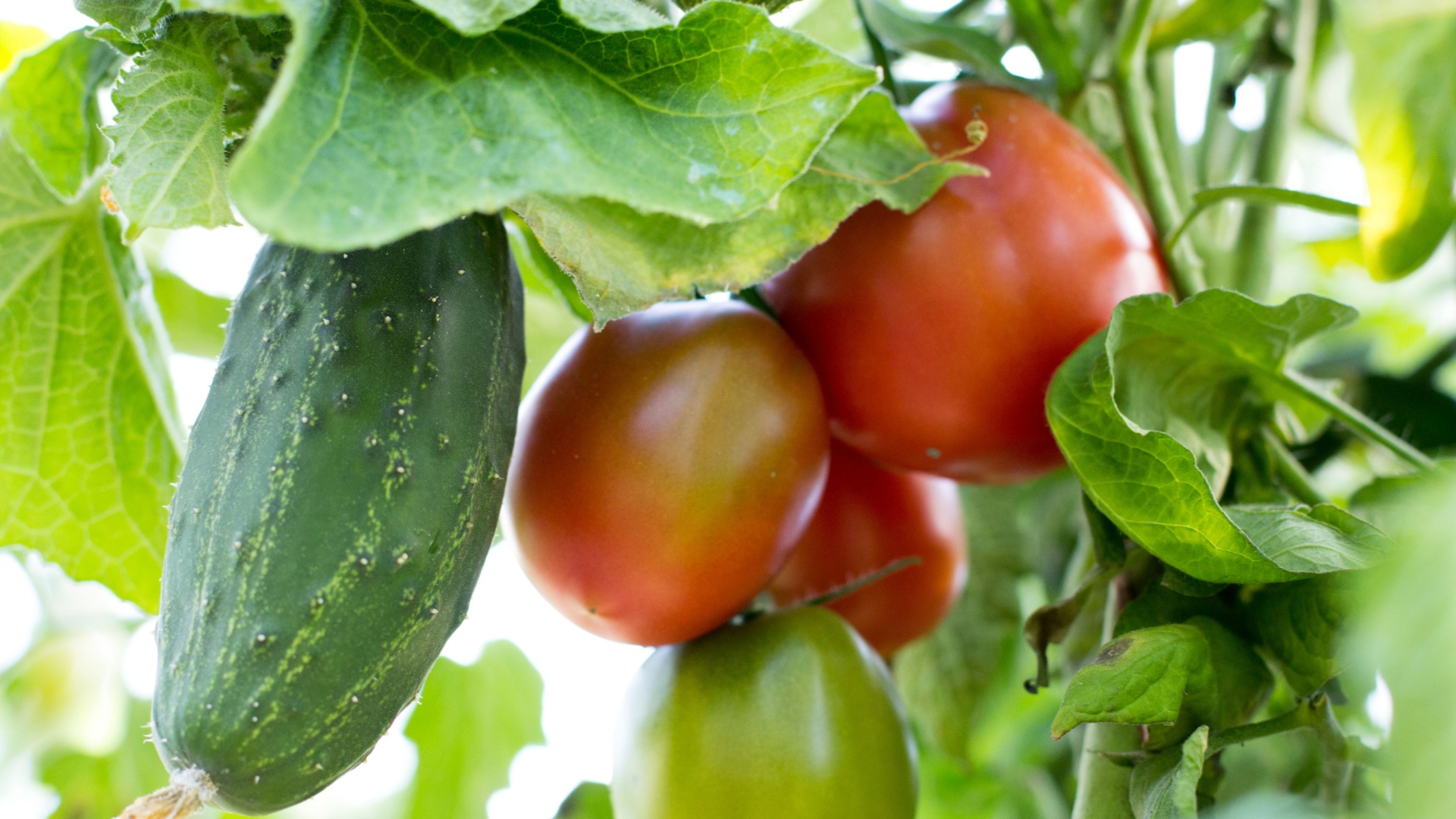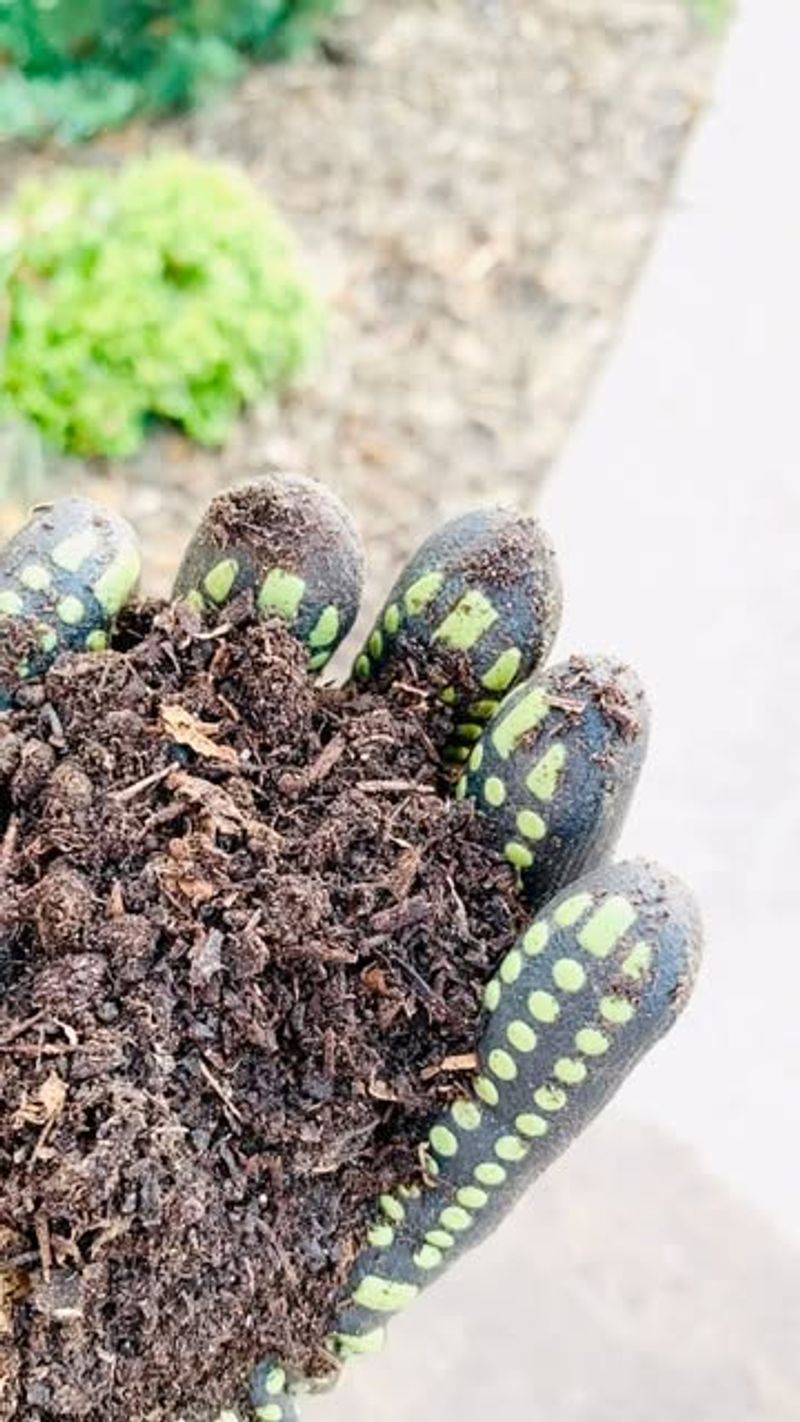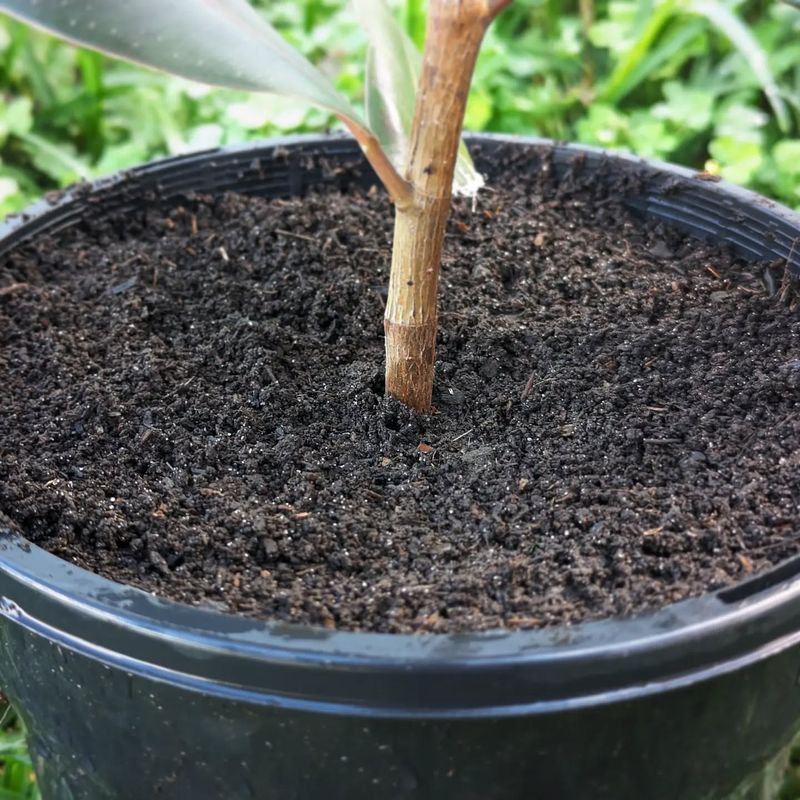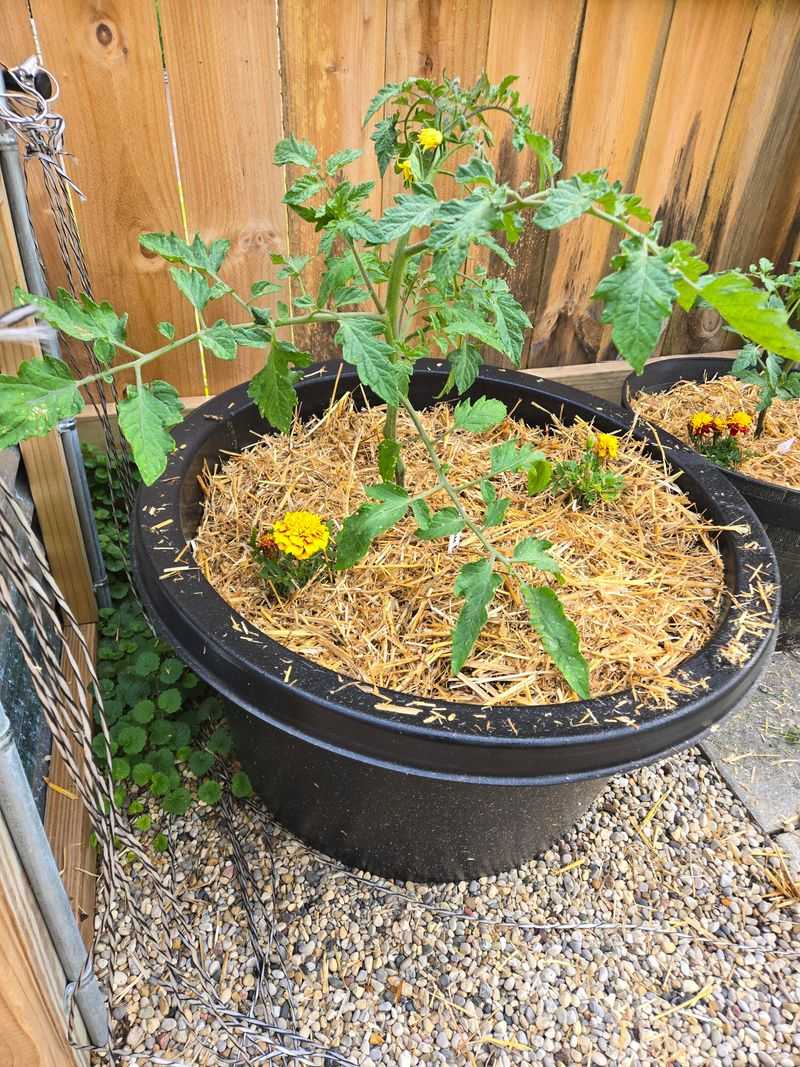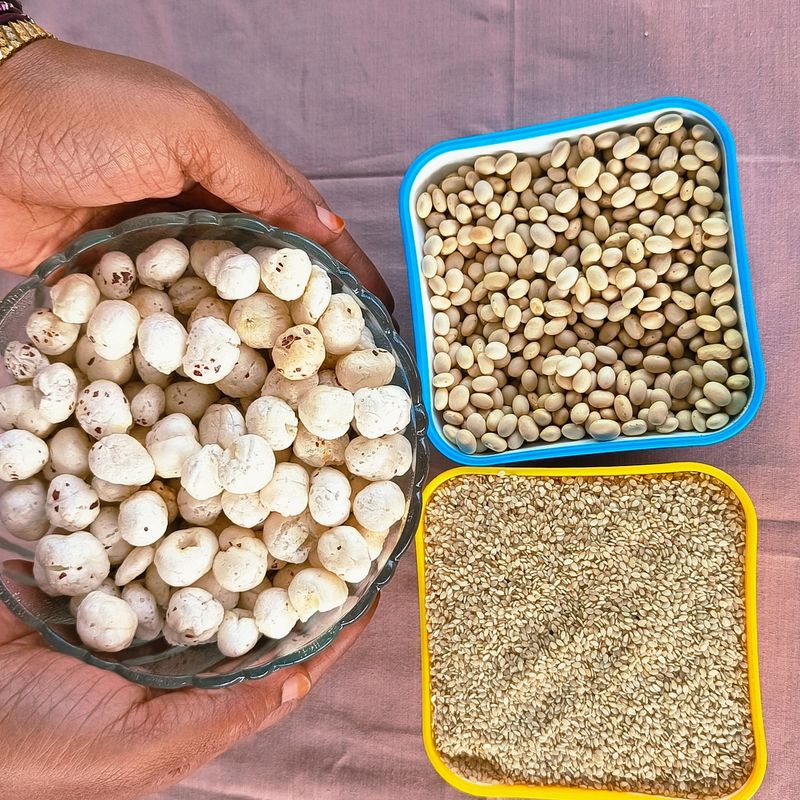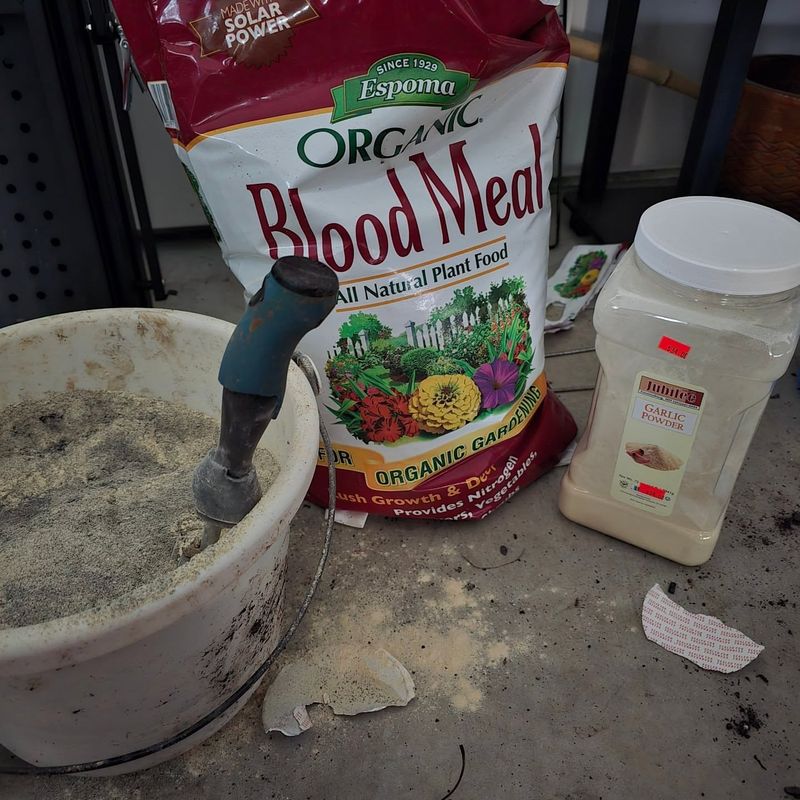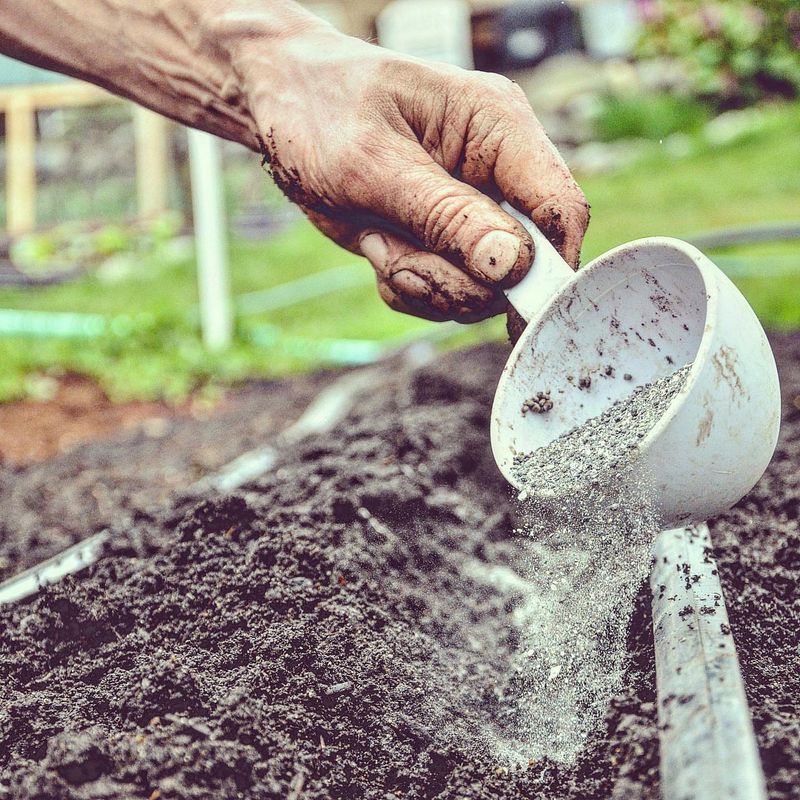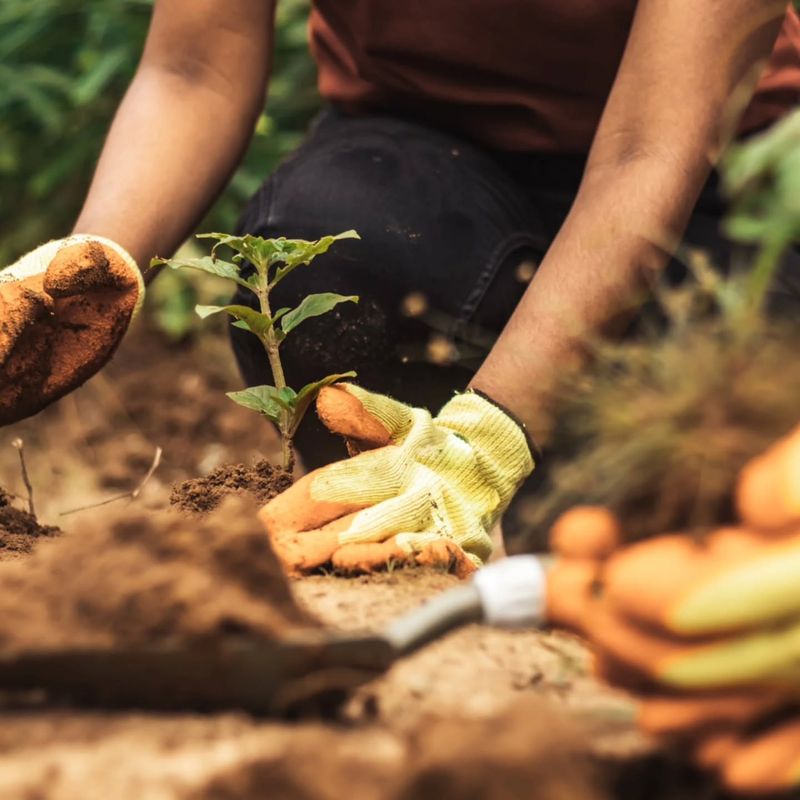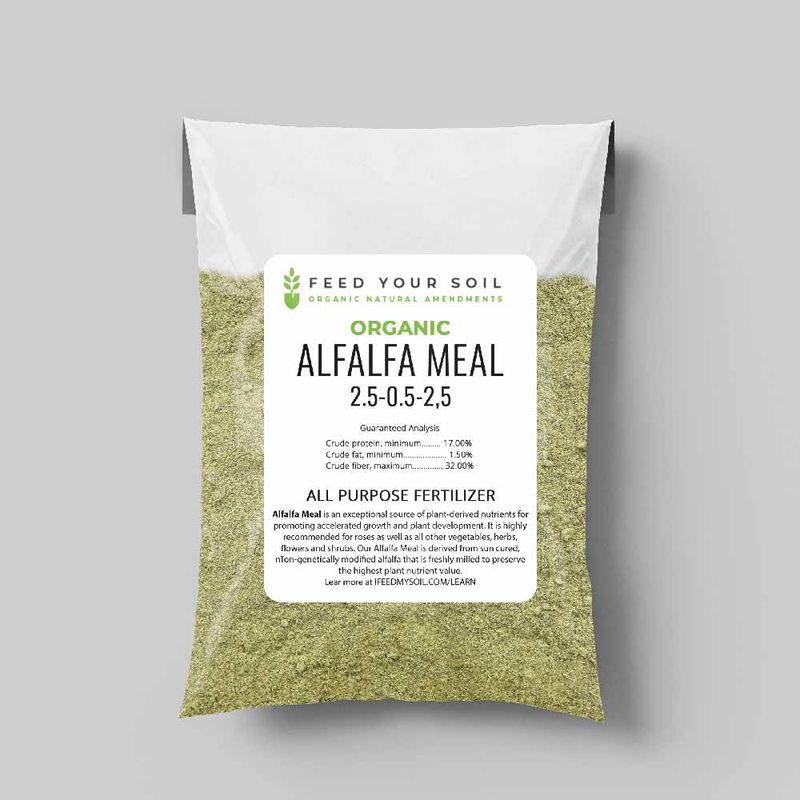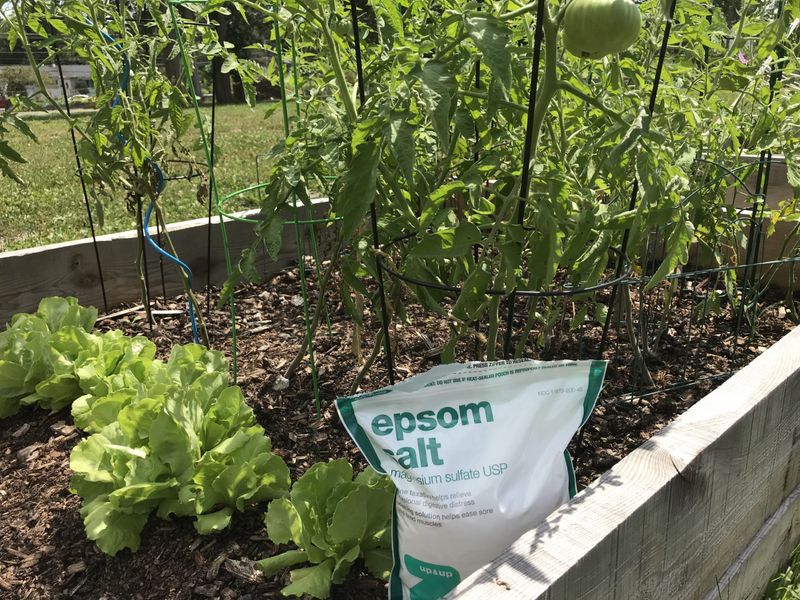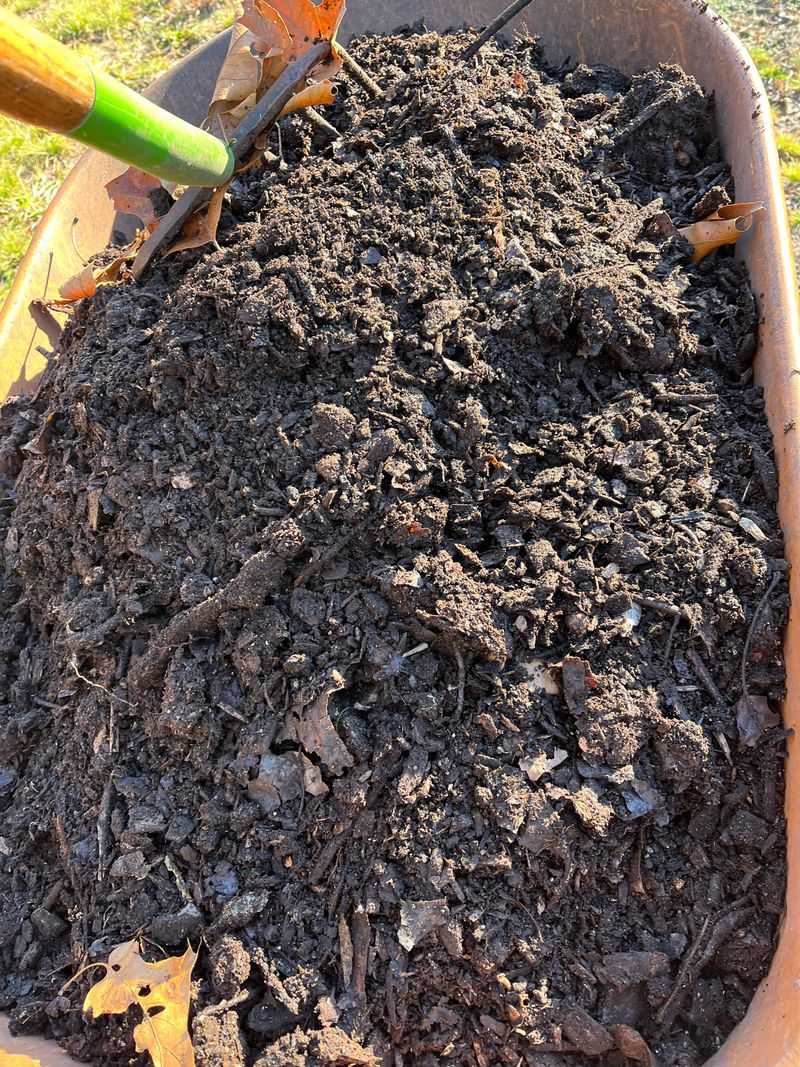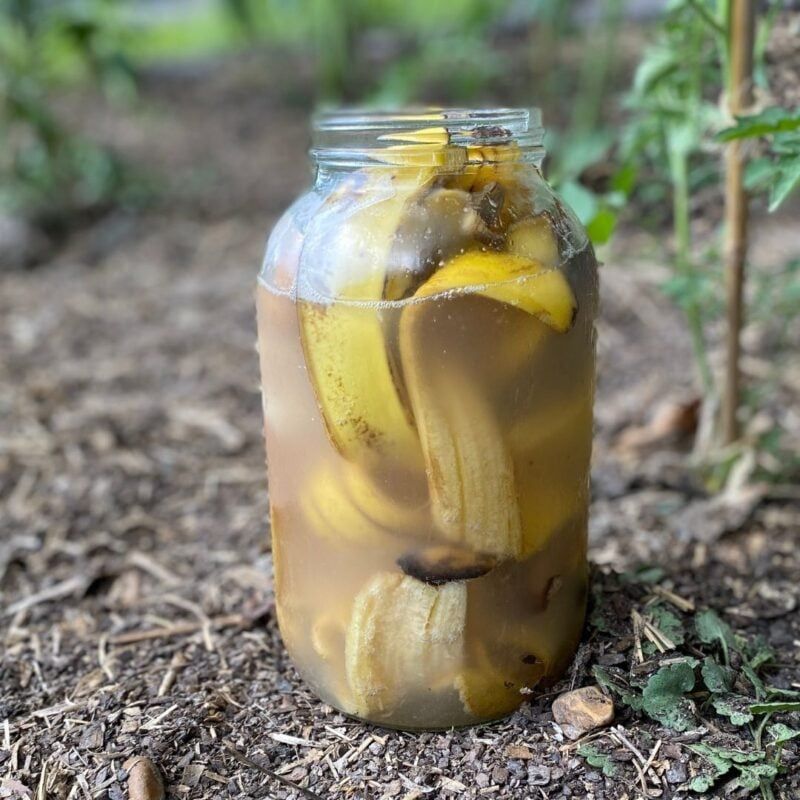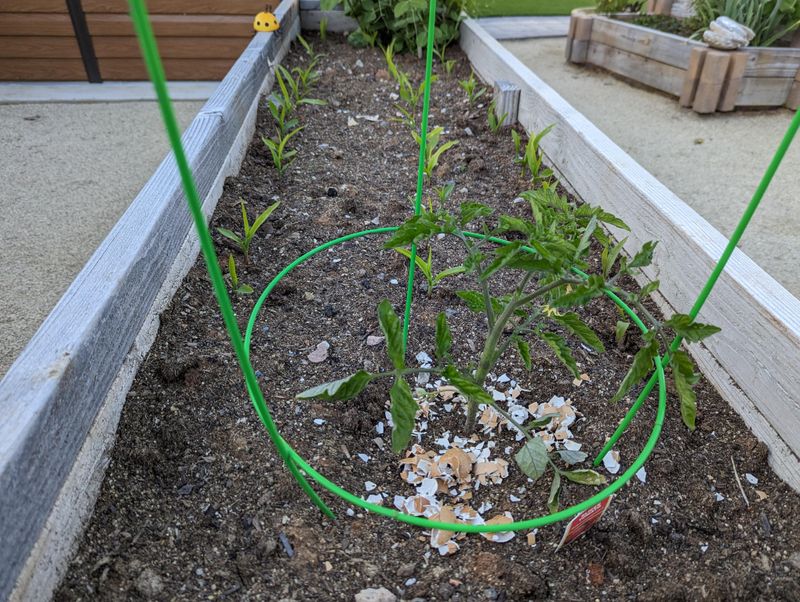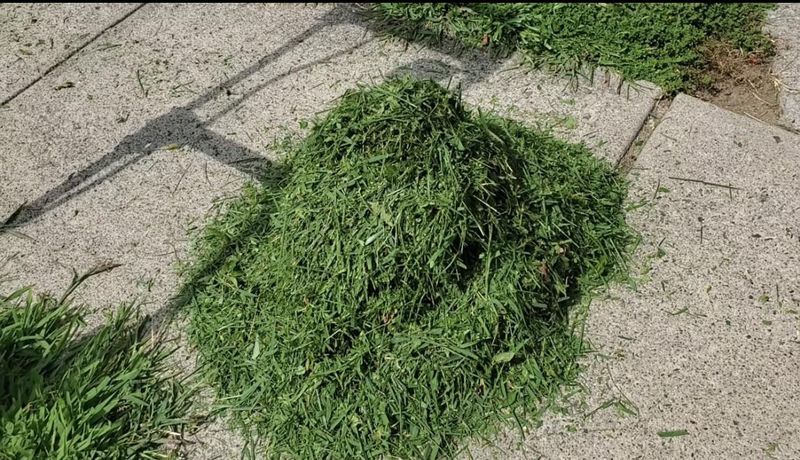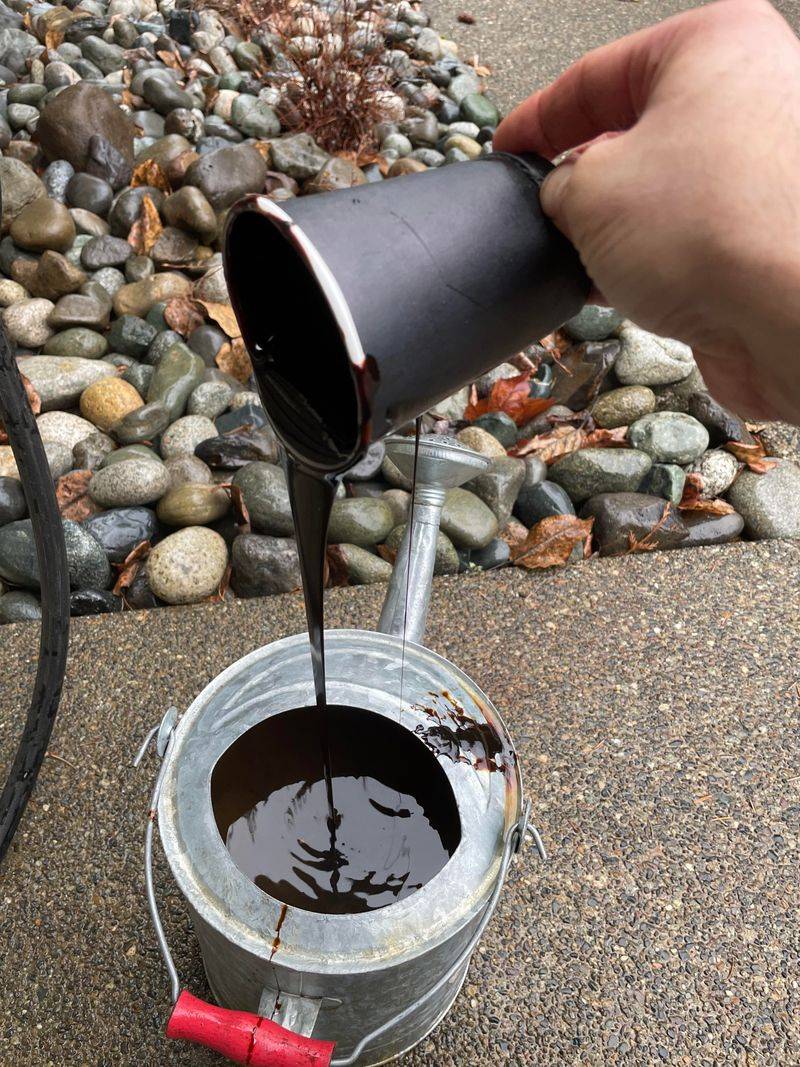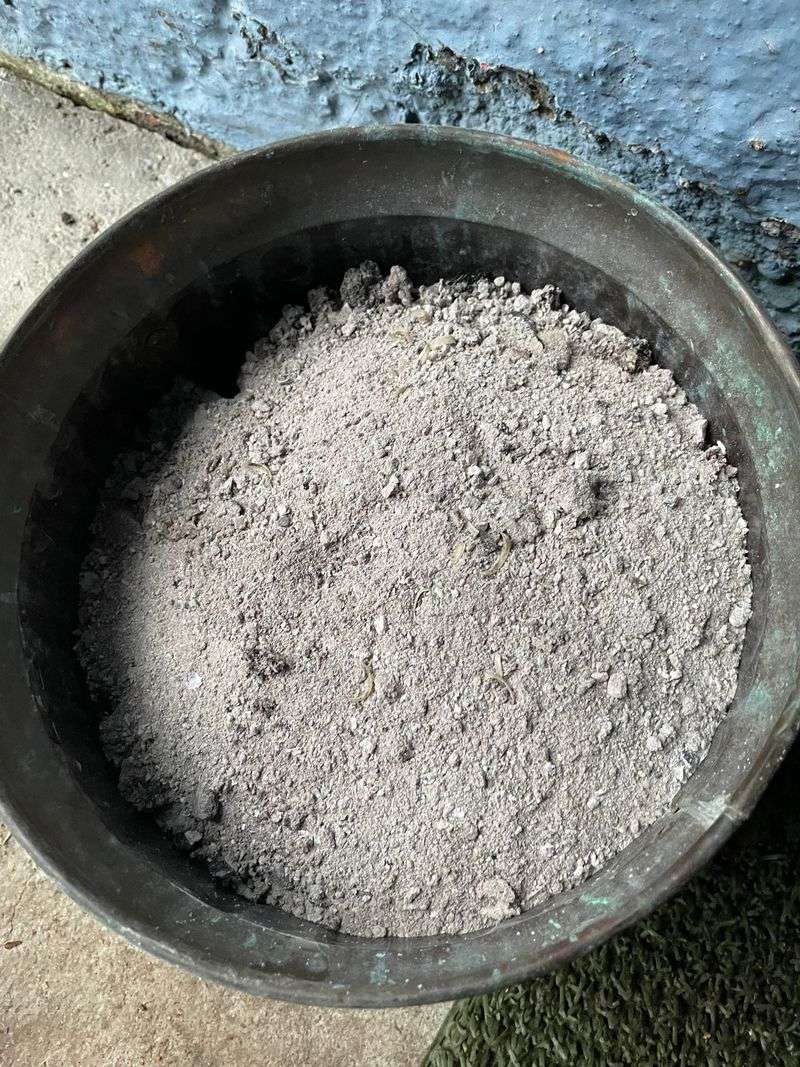Want bigger harvests without planting more? The secret’s in the fertilizer. Whether you’re growing tomatoes, cucumbers, or leafy greens, feeding your garden the right nutrients at the right time can double your yield.
These 16 powerful fertilizers support every stage of growth—from seedlings to heavy producers—so your veggies thrive like never before.
1. Compost: Garden Gold
Homemade compost transforms kitchen scraps and yard waste into nutrient-rich plant food. The dark, crumbly substance improves soil structure while feeding plants gradually throughout the growing season.
Vegetable roots thrive in compost-enriched soil, accessing a buffet of nutrients released slowly as beneficial microorganisms break down organic matter. For best results, mix several inches of compost into garden beds before planting or use as a 1-2 inch mulch around established plants.
Many gardeners call compost “black gold” because it’s valuable yet free to make!
2. Worm Castings: Nature’s Perfect Plant Food
Earthworm poop might sound gross, but it’s actually garden magic. Worm castings contain enzymes and beneficial microbes that plants absolutely love, providing a gentle, balanced nutrition source that won’t burn tender roots.
Unlike harsh chemical fertilizers, worm castings release nutrients slowly, exactly when plants need them. They also help soil retain moisture and improve its overall structure, creating the perfect environment for root growth.
Mix a handful into planting holes or brew worm casting tea by steeping in water overnight for an amazing liquid fertilizer.
3. Fish Emulsion: Smelly But Effective
Made from fish waste products, this potent liquid fertilizer packs a powerful nitrogen punch that leafy vegetables and young plants crave. The fishy smell might wrinkle your nose, but your plants will respond with explosive growth and vibrant green leaves.
Fish emulsion works fast because plants can absorb it directly through their leaves and roots. Simply mix with water according to package directions and apply every two weeks during the growing season.
Beyond nitrogen, fish emulsion contains trace minerals from the ocean that aren’t found in many other fertilizers.
4. Bone Meal: Phosphorus Powerhouse
Crushed animal bones might sound creepy, but they’re packed with phosphorus – the nutrient that powers flowering and fruiting. Tomatoes, peppers, and other fruiting vegetables develop stronger root systems and produce more abundant harvests when bone meal is added to their soil.
The fine powder releases slowly over several months, providing a steady supply of phosphorus right where roots need it. For best results, mix a handful into the soil when planting or sprinkle around established plants and water thoroughly.
Bone meal also contains calcium, which helps prevent blossom end rot in tomatoes.
5. Blood Meal: Nitrogen Boost
Leafy greens and nitrogen-hungry vegetables spring to life with blood meal applications. This powdery fertilizer, made from dried animal blood, delivers an immediate nitrogen injection that turns pale plants vibrant green within days.
Sprinkle a small amount around plants that look yellowish or stunted, then water it in well. The nitrogen kicks plants into high gear, especially during their early growth stages when they’re building leafy structure.
As a bonus, many gardeners report that blood meal repels rabbits and deer who dislike its scent.
6. Kelp Meal: Ocean-Powered Growth
Seaweed brings the ocean’s bounty to your garden with over 60 trace minerals and natural growth hormones. Plants treated with kelp develop stronger immune systems and better stress resistance, especially during drought or temperature extremes.
Unlike fertilizers that focus on the big three nutrients (nitrogen, phosphorus, potassium), kelp meal specializes in micronutrients that are often missing from garden soil. Mix it into soil before planting or steep in water to make a foliar spray.
Regular kelp applications result in sweeter fruits and extended harvests throughout the growing season.
7. Coffee Grounds: Caffeine For Your Garden
Morning coffee routine becomes garden gold when you save those used grounds. They’re slightly acidic, making them perfect for acid-loving plants like tomatoes and peppers, while adding valuable organic matter to the soil.
Coffee grounds improve drainage in clay soils and help sandy soils retain moisture. They also attract earthworms – nature’s soil tillers – who love munching on the grounds and leave behind nutrient-rich castings.
Sprinkle a thin layer around plants, being careful not to pile them against stems, or add to your compost pile for an extra nitrogen boost.
8. Chicken Manure: Balanced Nutrition
Backyard chickens produce garden gold daily! Their manure contains the perfect balance of nitrogen, phosphorus, and potassium for vegetable gardens. Unlike other animal manures, chicken droppings pack more nutritional punch per pound.
Always compost chicken manure for at least six months before using to prevent burning plants and eliminate pathogens. Once properly aged, it releases nutrients slowly throughout the growing season, feeding plants consistently rather than in bursts.
For the ultimate garden boost, spread a one-inch layer of composted chicken manure over beds in fall or early spring.
9. Alfalfa Meal: Plant Growth Stimulant
Originally used as livestock feed, alfalfa meal works wonders in vegetable gardens. The dried, ground alfalfa contains triacontanol, a natural growth stimulant that encourages faster development and higher yields, especially in fruiting vegetables.
Gardens treated with alfalfa meal show improved soil structure as beneficial microbes multiply, breaking down the alfalfa and releasing its nutrients. Unlike synthetic fertilizers, it feeds plants gradually over several months rather than all at once.
Work a few cups into each garden bed before planting or sprinkle around established plants and water thoroughly.
10. Epsom Salt: Magnesium Magic
Despite its name, Epsom salt isn’t actually salt but magnesium sulfate – a mineral compound that addresses a common deficiency in garden soils. Magnesium plays a crucial role in photosynthesis and helps plants use other nutrients more efficiently.
Tomatoes, peppers, and cucumbers with yellowing leaves often perk up after an Epsom salt treatment. Simply dissolve one tablespoon in a gallon of water and spray on foliage or drench the soil around plants monthly.
Many gardeners swear it makes tomatoes taste sweeter and peppers more abundant.
11. Bat Guano: Fast-Acting Fertilizer
Collected from bat caves, this exotic fertilizer delivers an impressive nutrient punch that vegetables love. High in nitrogen and phosphorus, bat guano stimulates rapid growth while encouraging abundant flowering and fruiting.
Unlike many organic fertilizers that work slowly, bat guano provides nutrients that plants can access almost immediately. The fine powder can be mixed into soil before planting or steeped in water to make a potent liquid fertilizer.
Beyond its nutrient content, bat guano contains beneficial microbes that improve soil health and help plants resist disease.
12. Banana Peels: Potassium-Rich Scraps
Don’t toss those banana peels! They’re loaded with potassium – the nutrient responsible for strong stems and disease resistance in plants. Potassium also helps plants move water efficiently through their tissues, making them more drought-tolerant.
Chop fresh peels into small pieces and bury them 1-2 inches deep near plant roots, where they’ll decompose and release nutrients gradually. For faster results, soak peels in water for three days to make “banana tea” for watering plants.
Tomatoes especially benefit from banana peel fertilizer during their fruiting stage.
13. Eggshells: Calcium Supplement
Breakfast leftovers become garden treasures when you save eggshells for your vegetables. Crushed shells slowly release calcium into the soil, preventing blossom end rot in tomatoes and strengthening cell walls in all plants.
Save shells, rinse them clean, and let them dry completely. Crush them into small pieces or grind them into powder using a coffee grinder for faster results. Sprinkle generously around plants or mix into soil before planting.
Beyond calcium, eggshells also deter slugs and snails who avoid crawling over the sharp edges.
14. Grass Clippings: Free Nitrogen Source
Mowing the lawn provides free fertilizer for your vegetable garden. Fresh grass clippings contain about 4% nitrogen – similar to many commercial fertilizers – and decompose quickly, feeding plants within weeks.
Use a thin layer (about 1 inch) of dried clippings as mulch around vegetables, being careful not to pile them against stems. As they break down, they release nitrogen while also suppressing weeds and conserving soil moisture.
Only use clippings from lawns that haven’t been treated with herbicides or pesticides, which could harm your vegetables.
15. Molasses: Microbe Multiplier
Unsulfured blackstrap molasses feeds soil microorganisms rather than plants directly, creating a thriving underground ecosystem that ultimately benefits your vegetables. The simple sugars provide quick energy for beneficial bacteria and fungi that break down organic matter into plant-available nutrients.
Mix one tablespoon of molasses with a gallon of water and apply monthly during the growing season. Gardens treated with molasses solutions show increased earthworm activity and faster compost breakdown.
Many gardeners report sweeter tomatoes and peppers after regular molasses applications.
16. Wood Ash: Potassium and Lime Combined
Fireplace cleanup becomes garden treasure when you save wood ash for your vegetables. The powdery remains of hardwood fires contain potassium, calcium, and many trace minerals that vegetables need for strong growth and disease resistance.
Wood ash also raises soil pH, making it ideal for slightly acidic soils or counteracting very acidic conditions. Sprinkle lightly over garden beds in winter or early spring, using about 5 pounds per 100 square feet.
Never use ash from coal fires or from wood treated with chemicals, as these contain harmful substances.

